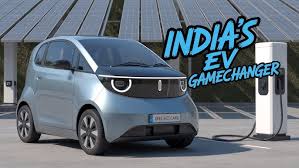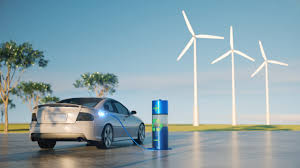Indian companies are not affected by China’s rare earth ban, OEMs say – “This is just a threat.
The trade war between China and the US has now reached a new stage. Despite China’s ban on the export of rare earth elements, Indian automobile and EV manufacturers are not looking too worried. OEMs are saying – “This is just a threat, the real impact is very low.”
Geopolitical War: Background of Rare Earth Ban
The beginning of 2025 has been daunting. On January 20, Donald Trump began his new presidential term and immediately announced reciprocal tariffs ranging from 10% to 50% on 24 countries. A direct 34% tariff was imposed on Chinese goods.
China responded just two days later – on April 4 – when it banned the export of seven critical rare earth elements. These elements include samarium, gadolinium, terbium, dysprosium, lutetium, scandium, and yttrium – which are used in advanced devices such as smartphones, fighter jets, EVs and wind turbines.

What is the state of India’s automotive industry?
China’s move has put manufacturers across the world under tension, but India’s auto industry is surprisingly calm. Players like Bajaj Auto, TVS Motor, and Maruti Suzuki have certainly reported some production problems, but they say that the situation is manageable.
Maruti Suzuki is also re-calculating the production of its e-VITARA model, but there is no panic.
Government’s Reaction: “Atma-Nirbharta Hi Rasta Hai”
Commerce and Industry Minister Piyush Goyal called an urgent meeting with top auto component manufacturers. Companies said that if the ban continues for a long time, inventory levels may fall. But Goyal clearly said – “Self-reliance is the only solution.”
He said:
“This is a wake-up call. If you are too dependent on one geography, you are vulnerable. Trusted partners and indigenous technology is the way forward.”
He made the same pitch during his Switzerland trip too – the importance of trust and self-dependence in global supply chains.
India has rare earth, but what is the problem?
India has the world’s 5th largest reserve of rare earth elements. These minerals are found in states like Rajasthan, Kerala, Tamil Nadu, Odisha, and Gujarat.
Still, India’s contribution to global production is negligible. In 2023, only $24,450 worth of scandium and yttrium was exported to countries like UAE, US, Bhutan, and Peru.

Production is not being scaled up due to geological issues of mines, radioactive properties, and poor refining technology.
Another major problem is that India does not have the required industrial-scale infrastructure and alloy technology to make magnets from rare earth.
Steps Towards Rare Earth-Free Solutions
This disruption has pushed Indian startups and manufacturers towards innovation.
Ola Electric’s Bhavish Aggarwal announced that his company is making rare-earth-free motors, which will come to the market by the end of 2025.
Chara Technologies (Bangalore-based startup) has already launched synchronous reluctance motors that work without rare earth magnets.
Chara CEO Bhakta Keshavachar says:
“Extracting rare earth elements is costly and environmentally dangerous. If global disruption continues and alternatives are not found, production will stop in India.”
He says OEMs along with R&D institutions like IITs and DRDO will have to develop indigenous motor technology.
Way forward: Technology, Policy and Regulation
Experts say that at the moment there is only one solution – freedom from rare-earth and development of new alternatives. A technology-first strategy is essential to counter China.
Catchy slogans like “Atmanirbhar Bharat” will only work if it has strong policy support, funding, and research base behind it.
Conclusion: More threat, less effect?
Despite China’s ban, Indian OEMs are confident – they believe this is a short-term hiccup, in the long-term India has got an opportunity for technological independence.
But, if India does not focus on infrastructure, research and local manufacturing, then this opportunity can also be lost.
Reducing dependency on bare earth is no longer optional, it is a strategic compulsion.
Conclusion in one line:
When the world is dependent on China for rare earth, India is paving a new path towards rare-earth-free future.
.
